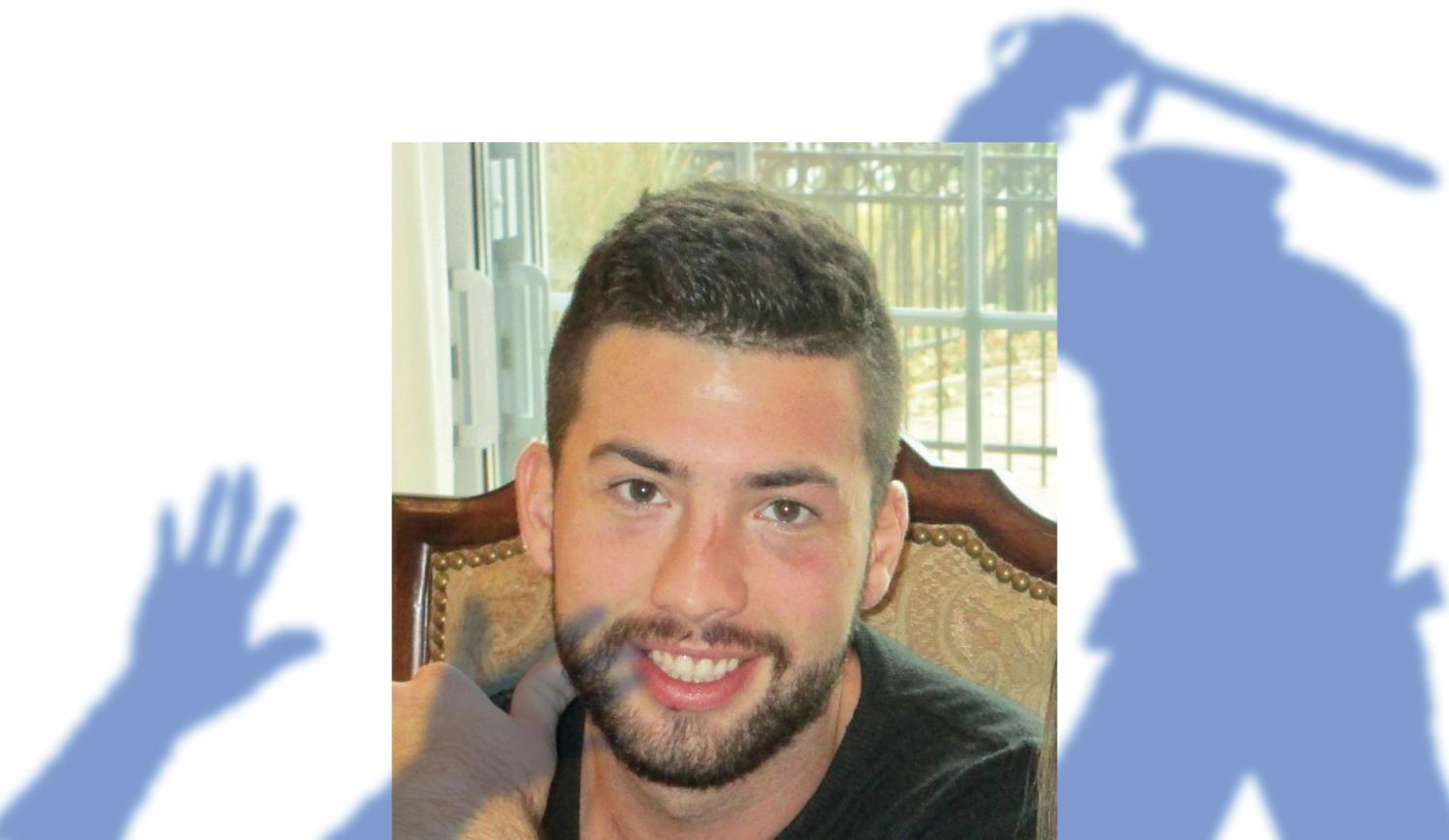
Harm done. The tragic story of Koray Kevin Celik
My dad Oscar was a cop, back in an era, eons ago, when the violent crime rate in Canada was not much different from what it is today. When he joined what was back then the Eastview (Vanier) police force, led by Chief Richard Mannion from Ireland, my father was not issued a sidearm. The small force had bicycles, and community policing was the norm. Oscar walked the beat in summer and in the dead of winter, checking doors at night, and making sure bars and hotels closed up securely and without incident. He knew everybody and everybody knew him. He knew how to disable a troublemaker if he had to; but mostly, he kept the peace. I remember the disdain in his voice when the Rodney King pummelling by LAPD officers exploded in the media. Dad expressed with disgust in his voice, floridly in both official languages, that the worst possible police officer is that son-of-a-bitch thug who thinks he’s entitled to enforce the law.
Before community policing centres were closed in Ottawa, it was a common sight to see officers among civilians or walking the beat. It was the norm in the Glebe, in the ByWard Market, and other urban neighbourhoods until not that long ago. The cancellation of that program is now regarded as an error, and centres are being re-opened in certain neighbourhoods. This may prove to be a smart move. The relationship today between the police and the public is, like most others in today’s society, deeply, technologically mediated. Cities have become vast, complex things. Officers cannot know, being so encapsulated, that a certain young man may have a mental illness, or that a certain woman, otherwise harmless, may seek thrills by shoplifting. A Zoom meeting with a physician may be a necessity, but it does not replace human contact, nor does a high-tech police car zooming in and out of a part of town from a remote station in response to a call.
The fractures that have widened between the police and communities across North America can only be mended by direct, interpersonal re-engagement supported by training. Otherwise, incidents like the one that involved the death of 28-year-old Koray Kevin Celik of Montréal in 2017 may tragically occur again.
Cesur Celik is an articulate, educated businessman whose voice cracks with emotion when speaking of his son Koray. “How are you today, sir,” I asked him when we first connected by phone. “Please don’t ask me that,” he replied, “things will never be the same again.” You could hear the trembling in his body, when he knew, on an otherwise sunny summer morning, that he was about to revisit the traumatic family tragedy that has shaped his life ever since.
The story that unfolded was swift and shocking. Koray’s parents, Cesur and June, describe a brutal attack by Montréal police officers. This is their account of the event:
The time was around 2:00 a.m., March 6, 2017, and the location was the Celik family home on Île–Bizard on Montréal’s West Island. Cesur and June were trying to comfort their 28-year-old son, whom they describe as an exceptional student and athlete. Koray’s distress was due, they believe, to an intoxicating combination of alcohol and a medication taken for upcoming dental surgery. Koray wanted to acquire some sleeping medication, but his parents hid his car keys when he started talking about driving. When he found another set, they called the Montréal police for assistance, to whom they reported their son’s state. The four officers who arrived at the scene were told that Koray was intoxicated.
Koray was sitting on his bed. June met one officer in the hallway, who had let herself in via the front door. Meanwhile, Celik met the others at the entrance to the garage. June recalls that the policewoman walked towards Koray’s bedroom and shone a flashlight at him. Naturally irritated by this, he told her to turn it off. He then got up and approached the doorway, at which point she shone the bright light in his eyes. June was at the doorway at this point, holding her son.
Koray stepped into the hallway. He appeared dishevelled and his wardrobe of mismatched shoes, basketball shorts and a winter jacket revealed a confused state. Despite Koray’s protests, the officer continued to shine her flashlight into his eyes, provoking a shouting match between the two of them. She then threw what appeared to be the flashlight at Koray’s chest. At this point, an officer ran to her side and the two removed their batons. Koray instinctively covered his face with his arms and hands and stepped back. It was interpreted as an aggressive act.
The female officer was the first to strike him with a baton, followed by her partner. The remaining officers rushed in and drew their batons. There was a struggle to get Koray to the ground. The disturbance knocked ceramic plates from the wall, which smashed on the floor. One officer then hit Koray across the legs with a baton, causing him to slam face down. An officer then placed Koray’s head between his knees while another handcuffed him behind his back. One of the male officers lay on top of Koray and covered his mouth and nose with his hand, putting pressure on Koray's back and neck. The female officer was kicking Koray's ribs with her boots on both sides, jumping from one side to the other. Another was on the floor kneeing him in the ribs. Both parents pleaded hysterically for them to stop.
One officer shouted back to Cesur that Koray, "is biting my hand." Cesur, desperate to stop the attack, shouted back, “Koray, please don't bite, son.” Something was jabbed into his side that emitted a flash. Koray became motionless. One of the officers stopped to tell the others, "Stop, he is not breathing." According to Cesur: “What needs to be clear is that Koray was handcuffed and lying face down on the floor when all four accelerated their vicious assault and never stopped until they took his life.”
According to the report by the Bureau of Independent Investigations (BEI en français), the agency which investigates cases involving the death or injury of a person during a police operation, officers "rapidly realized that [Koray] was now unconscious and did not have a pulse," and that efforts to revive him at the scene failed. He was rushed to hospital where he was pronounced dead. The final autopsy report attributed the death to cardio-respiratory arrest caused by intoxication.
The 911 dispatcher assigned four officers, three males and a female, to deal with one man, who was sitting on his bed when they entered his home. I asked Mr. Celik if the female officer brought an empathetic presence to the situation, as has been recently suggested as a possible solution to police violence, in response to the George Floyd killing. “She was actually one of the worst sub- sub humans I’ve ever seen,” he replied.
I’m certain that my father had to single-handedly deal with a lot of intoxicated people on the Montreal Road in the old days. There may have been only four officers on shift on any given night, and so, I described for Mr. Celik what I imagined such a police intervention in a family home would have looked like in my father’s time, informed by the many stories he told.
A single officer, perhaps two, but definitely not four, would have arrived at the door, wearing traditional uniforms, and not para-military garb and hardware. They may, or may not, have been carrying a sidearm. They would have carried small leather nightsticks, but not metal batons. Following a consultation with the parents, one of them would have entered the bedroom, while the other remained with the parents close by. The officer in the room would have sat down if the individual was seated; which Koray was, on his bed. The officer would have assumed a protective responsibility to prevent the individual from harming himself or others. The officer would have attempted to de-escalate any aggression, and would have avoided intimidating behaviour or tone of voice. The officer would have offered Koray assistance and reassurance. A call may have been made for an ambulance, if that was deemed necessary. The other officer would have entered the room if restraint was required, in which case both officers would have applied their training to handcuff the individual face-down on the floor. The officers would have then consulted with the parents as to the desired course of action. When I concluded the narrative, Mr. Celik exclaimed, “Exactly! That’s exactly what I have said I would have expected to happen! Many, many times!”
The Celik family is haunted by that night and the “murder,” as they describe it. Koray’s eldest brother left the country and moved to Turkey. His other brother left for Ontario with his wife, spontaneously and without job prospects, just to get out of Montréal. His father Cesur can only reflect in dismay about what happened. “This is not the country I thought it was. I worked for a big company and set up a lot of businesses. I could work anywhere,” he says. He paused a couple of times; long, pitiable pauses saturated with grief and stifled tears, in order to regain his composure. “I came to Canada for its reputation, because I thought this was a good country. But for this to happen here! This is not Saddam Hussein’s Iraq, this is Québec, this is Canada.”
The Celik family has launched a lawsuit against the BEI, alleging that the agency is not accountable to the public, and that the BEI allegedly acted unlawfully when it published an account of the incident that was riddled with omissions and included extraneous information not required by the Police Act. According to family members who were present, the BEI omitted any observations they reported in interviews that contradicted the police account, and that led to the complete absolution of any police wrongdoing. The BEI never released its full reports to the public.
The latest heartbreak for the Celiks came in mid-July, when the Police Ethics Commission (PEC) dismissed the family’s assertion that excessive force by police induced the heart attack that caused Koray’s death. The PEC described the officers’ actions as being "reasonable force," contrary to the witness statement describing beating, choking, back and vascular pressure. The PEC concluded that the cause of death resulted from drugs in Koray’s system that aggravated a pre-existing heart condition. According to Koray’s father Cesur, his son, “was a 28-year old man who had several medical procedures, check-ups, including surgeries, and was never diagnosed with any heart problems.”
It has not been possible for the Celik family to find a single hospital or pathologist (in Québec or elsewhere in Canada) to conduct a private autopsy on their deceased son. The family is now formulating its response to the PEC.
The question remains: could cardio-respiratory arrest caused by intoxication been avoided had Koray been handled by old-fashioned police protection, rather than para-militarized police force?
The name Koray means “glowing moon” in Turkish.








